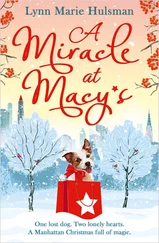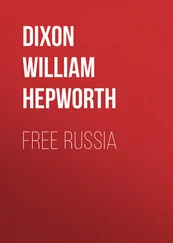Nikolai Nekrasov - Who Can Be Happy and Free in Russia?
Здесь есть возможность читать онлайн «Nikolai Nekrasov - Who Can Be Happy and Free in Russia?» весь текст электронной книги совершенно бесплатно (целиком полную версию без сокращений). В некоторых случаях можно слушать аудио, скачать через торрент в формате fb2 и присутствует краткое содержание. Год выпуска: 2005, Жанр: Поэзия, на английском языке. Описание произведения, (предисловие) а так же отзывы посетителей доступны на портале библиотеки ЛибКат.
- Название:Who Can Be Happy and Free in Russia?
- Автор:
- Жанр:
- Год:2005
- ISBN:нет данных
- Рейтинг книги:3 / 5. Голосов: 1
-
Избранное:Добавить в избранное
- Отзывы:
-
Ваша оценка:
- 60
- 1
- 2
- 3
- 4
- 5
Who Can Be Happy and Free in Russia?: краткое содержание, описание и аннотация
Предлагаем к чтению аннотацию, описание, краткое содержание или предисловие (зависит от того, что написал сам автор книги «Who Can Be Happy and Free in Russia?»). Если вы не нашли необходимую информацию о книге — напишите в комментариях, мы постараемся отыскать её.
Who Can Be Happy and Free in Russia? — читать онлайн бесплатно полную книгу (весь текст) целиком
Ниже представлен текст книги, разбитый по страницам. Система сохранения места последней прочитанной страницы, позволяет с удобством читать онлайн бесплатно книгу «Who Can Be Happy and Free in Russia?», без необходимости каждый раз заново искать на чём Вы остановились. Поставьте закладку, и сможете в любой момент перейти на страницу, на которой закончили чтение.
Интервал:
Закладка:
Two hands have come floating
From no one sees where, 540
Place a bucket of vodka,
A large pile of bread,
On the magic white napkin,
And dwindle away.
The peasants feel strengthened,
And leaving Román there
On guard near the vodka,
They mix with the people,
To try to discover
The one who is happy. 550
They're all in a hurry
To turn towards home.
CHAPTER IV
THE HAPPY ONES
In crowds gay and noisy
Our peasants are mixing,
Proclaiming their mission:
"Let any man here
Who esteems himself happy
Stand forth! If he prove it
A pailful of vodka
Is at his disposal;
As much as he wishes
So much he shall have!" 10
This fabulous promise
Sets sober folk smiling;
The tipsy and wise ones
Are ready to spit
In the beards of the pushing
Impertinent strangers!
But many are willing
To drink without payment,
And so when our peasants
Go back to the birch-tree 20
A crowd presses round them.
The first to come forward,
A lean discharged deacon,
With legs like two matches,
Lets forth a great mouthful
Of indistinct maxims:
That happiness lies not
In broad lands, in jewels,
In gold, and in sables—
"In what, then?" 30
A peaceful
And undisturbed conscience.
That all the dominions
Of land-owners, nobles,
And Tsars are but earthly
And limited treasures;
But he who is godly
Has part in Christ's kingdom
Of boundless extent:
"When warm in the sun, 40
With a cupful of vodka,
I'm perfectly happy,
I ask nothing more!"
"And who'll give you vodka?"
"Why, you! You have promised."
"Be off, you lean scamp!"
A one-eyed old woman
Comes next, bent and pock-marked,
And bowing before them
She says she is happy; 50
That in her allotment
A thousand fine turnips
Have grown, this last autumn.
"Such turnips, I tell you!
Such monsters! and tasty!
In such a small plot, too,
In length only one yard,
And three yards in width!"
They laugh at the woman,
But give her no vodka; 60
"Go, get you home, Mother!
You've vodka enough there
To flavour the turnips!"
A soldier with medals,
Quite drunk but still thirsty,
Says firmly, "I'm happy!"
"Then tell us, old fellow
In what he is happy—
The soldier? Take care, though,
To keep nothing back!" 70
"Well, firstly, I've been
Through at least twenty battles,
And yet I'm alive.
And, secondly, mark you
(It's far more important),
In times of peace, too,
Though I'm always half-famished,
Death never has conquered!
And, third, though they flogged me
For every offence, 80
Great or small, I've survived it!"
"Here, drink, little soldier!
With you one can't argue;
You're happy indeed!"
Then comes a young mason,
A huge, weighty hammer
Swung over his shoulder:
"I live in content,"
He declares, "with my wife
And beloved old mother; 90
We've nought to complain of."
"In what are you happy?"
"In this!"—like a feather
He swings the great hammer.
"Beginning at sunrise
And setting my back straight
As midnight draws near,
I can shatter a mountain!
Before now, it's happened
That, working one day, 100
I've piled enough stones up
To earn my five roubles!"
Pakhóm tries to lift it—
The "happiness." After
Prodigiously straining
And cracking all over,
He sets it down, gladly,
And pours out some vodka.
"Well, weighty it is, man!
But will you be able 110
To bear in old age
Such a 'happiness,' think you?"
"Don't boast of your strength!"
Gasped a wheezing old peasant,
Half stifled with asthma.
(His nose pinched and shrivelled
Like that of a dead man,
His eyes bright and sunken,
His hands like a rake—
Stiffened, scraggy, and bony, 120
His legs long and narrow
Like spokes of a wheel,
A human mosquito.)
"I was not a worse man
Than he, the young mason,
And boasted of my strength.
God punished me for it!
The manager knew
I was simple—the villain!
He flattered and praised me. 130
I was but a youngster,
And pleased at his notice
I laboured like four men.
One day I had mounted
Some bricks to my shoulder,
When, just then, the devil
Must bring him in sight.
"'What's that!' he said laughing,
'Tis surely not Trifon
With such a light burden? 140
Ho, does it not shame
Such a strapping young fellow?'
'Then put some more bricks on,
I'll carry them, master,'
Said I, sore offended.
For full half an hour
I stood while he piled them,
He piled them—the dog!
I felt my back breaking,
But would not give way, 150
And that devilish burden
I carried right up
To the high second story!
He stood and looked on,
He himself was astounded,
And cried from beneath me:
'Well done, my brave fellow!
You don't know yourself, man,
What you have been doing!
It's forty stone, Trifon, 160
You've carried up there!'
"I did know; my heart
Struck my breast like a hammer,
The blood stood in circles
Round both of my eyeballs;
My back felt disjointed,
My legs weak and trembling …
'Twas then that I withered.
Come, treat me, my friends!"
"But why should we treat you?
In what are you happy? 171
In what you have told us?"
"No, listen—that's coming,
It's this: I have also,
Like each of us peasants,
Besought God to let me
Return to the village
To die. And when coming
From Petersburg, after
The illness I suffered 180
Through what I have told you,
Exhausted and weakened,
Half-dazed, half-unconscious,
I got to the station.
And all in the carriage
Were workmen, as I was,
And ill of the fever;
And all yearned for one thing:
To reach their own homes
Before death overcame them. 190
'Twas then I was lucky;
The heat then was stifling,
And so many sick heads
Made Hell of the waggon.
Here one man was groaning,
There, rolling all over
The floor, like a lunatic,
Shouting and raving
Of wife or of mother.
And many such fellows 200
Were put out and left
At the stations we came to.
I looked at them, thinking,
Shall I be left too?
I was burning and shaking,
The blood began starting
All over my eyeballs,
And I, in my fever,
Half-waking, was dreaming
Of cutting of cocks' throats 210
(We once were cock-farmers,
And one year it happened
We fattened a thousand).
They came to my thoughts, now,
The damnable creatures,
I tried to start praying,
But no!—it was useless.
And, would you believe me?
I saw the whole party
In that hellish waggon 220
Come quivering round me,
Their throats cut, and spurting
With blood, and still crowing,
And I, with the knife, shrieked:
'Enough of your noise!'
And yet, by God's mercy,
Made no sound at all.
Интервал:
Закладка:
Похожие книги на «Who Can Be Happy and Free in Russia?»
Представляем Вашему вниманию похожие книги на «Who Can Be Happy and Free in Russia?» списком для выбора. Мы отобрали схожую по названию и смыслу литературу в надежде предоставить читателям больше вариантов отыскать новые, интересные, ещё непрочитанные произведения.
Обсуждение, отзывы о книге «Who Can Be Happy and Free in Russia?» и просто собственные мнения читателей. Оставьте ваши комментарии, напишите, что Вы думаете о произведении, его смысле или главных героях. Укажите что конкретно понравилось, а что нет, и почему Вы так считаете.











